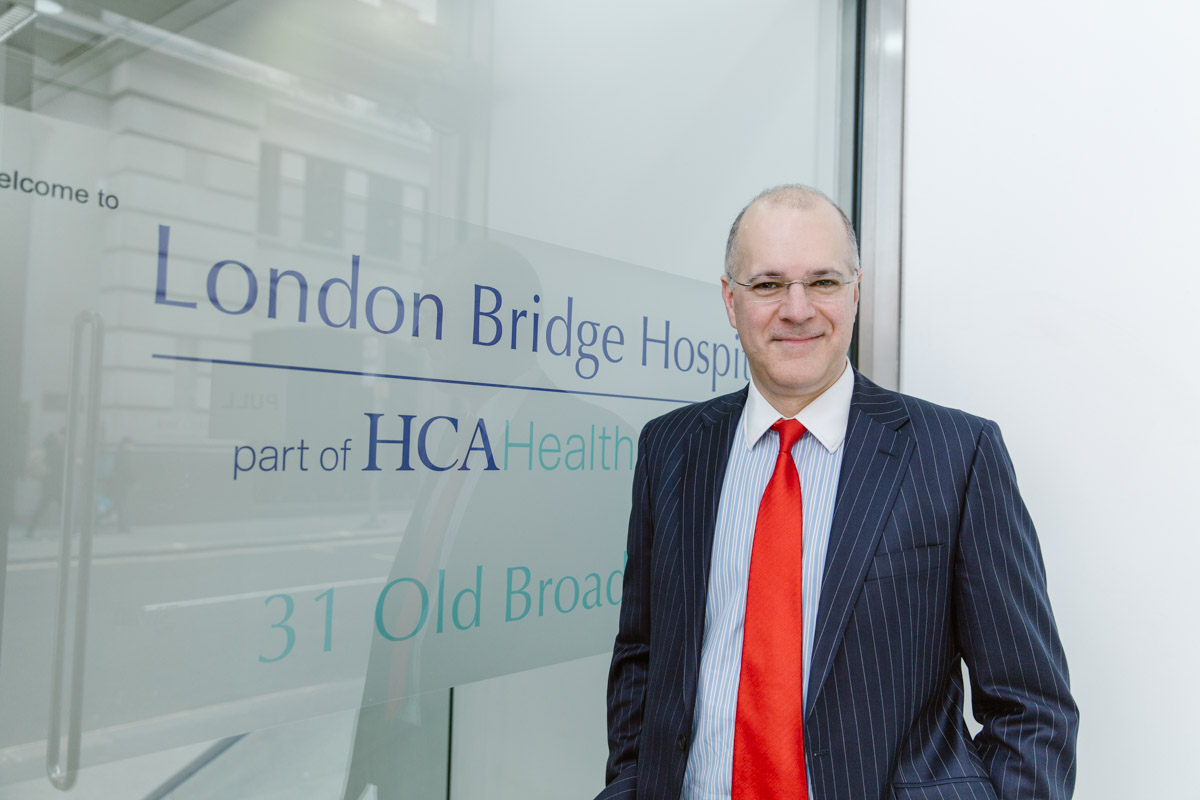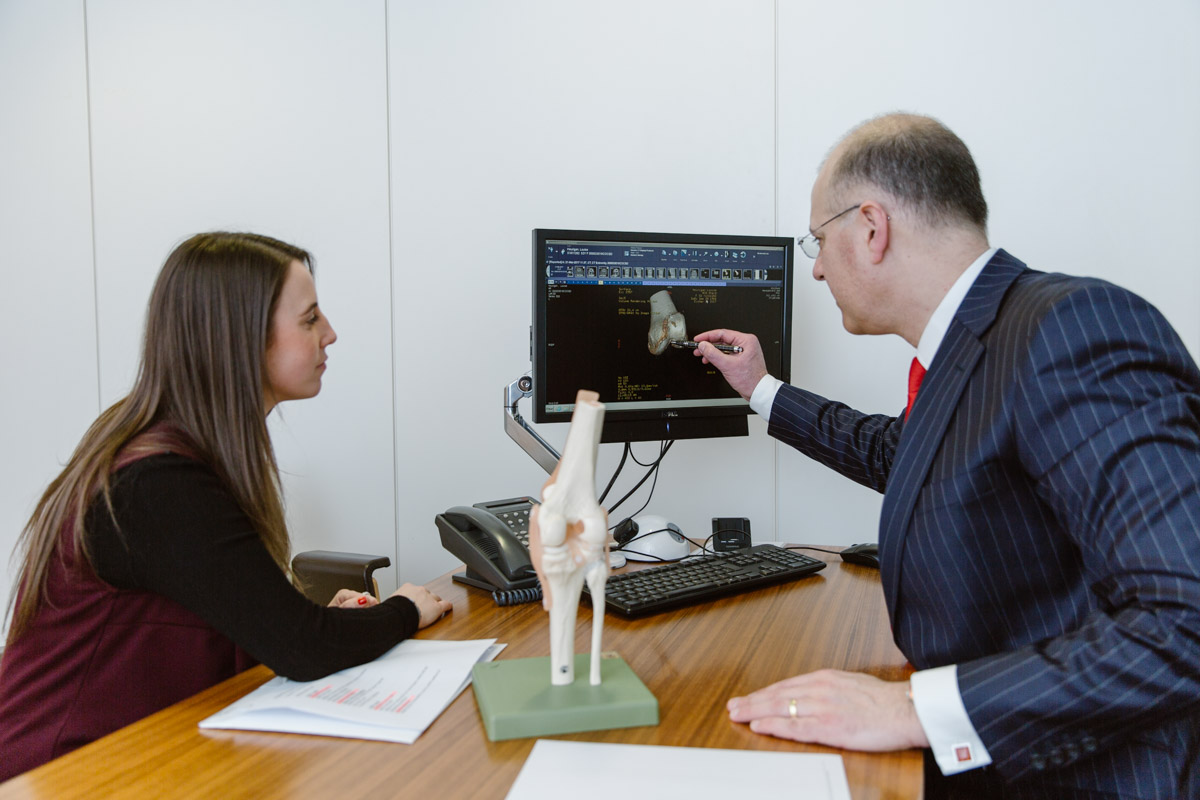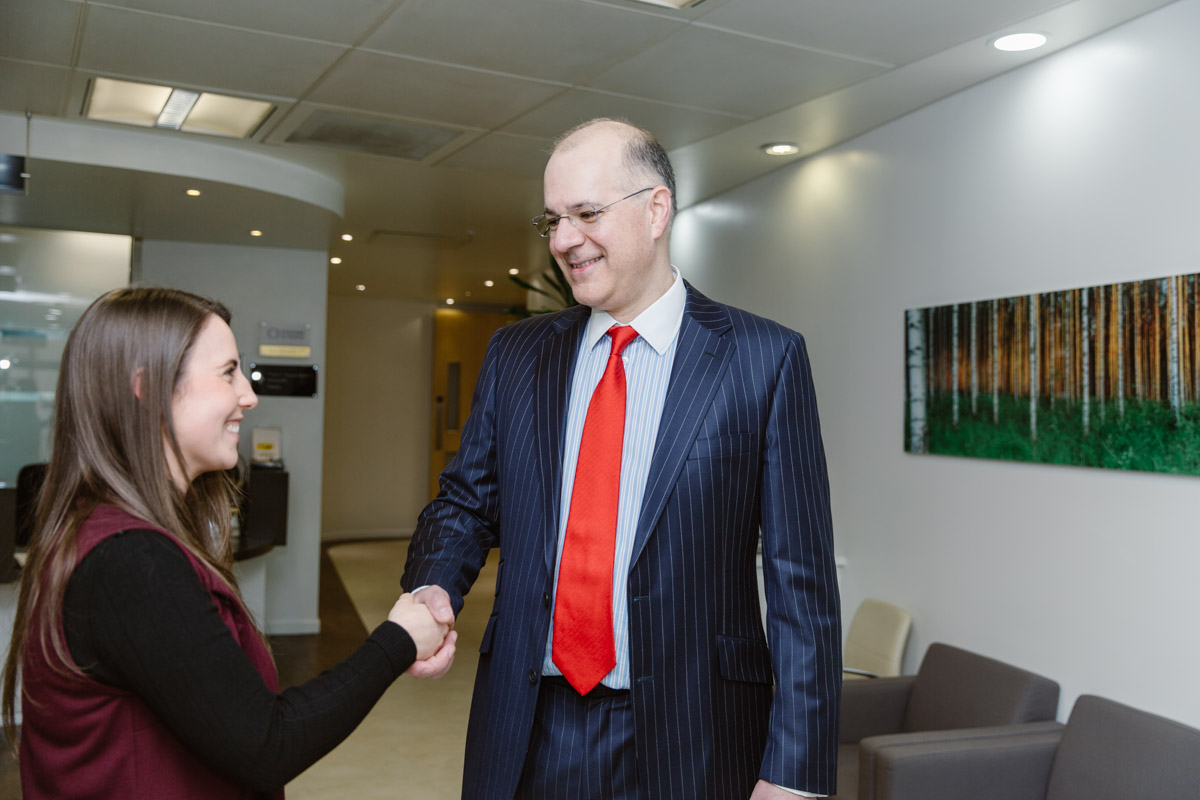Assessments
Ian sees patients in clinic at London Sports Orthopaedics’ main centre, at 31 Old Broad Street, in the middle of The City of London, which is linked to London Bridge Hospital. Ian also sees patients at The Hospital of St John & St Elizabeth, in St John’s Wood, and at The London Clinic, on Harley Street, which are amongst the very top private hospitals in the whole of the UK.
Patients are allocated a standard 1/2-hour slot for all appointments. However, if you know that your case is complicated, and particularly if you are seeking a second opinion or if you need complex revision surgery, then please specifically request a 1-hour slot, which can normally be accommodated — it is important that there is sufficient time to go through everything fully. If it is felt necessary then Ian may e-mail you information to read, specific to your particular condition, and then book you back into clinic for a further follow-up appointment prior to any surgery actually being booked.
Your clinic appointment is just the first step in an important ongoing process. Most people need imaging of their knee to help clarify the exact diagnosis (X-rays, MRI, CT or Ultrasound), and if this imaging has not already been performed then the necessary investigations will be arranged for you.
All patients are sent a detailed letter after their appointment, summarising exactly what was discussed. In addition, where appropriate, Ian also tends to e-mail his patients with advice sheets and articles. Patients are then actively encouraged to get back to us with whatever potential further questions they might have, prior to them then making any actual decisions about what potential treatments they might want to go ahead with.
Ian prides himself on taking however much time is required with his patients to ensure that they fully understand what is wrong with their knee and what their potential options might be, along with all the potential associated pros and cons of each. With some conditions urgent surgery is strongly advisable. However, in many cases the decision as to whether or not to go ahead with a knee operation is less straight forward, and this depends very much on the nature of the problem, the severity of the symptoms, how the symptoms are impacting the individual’s function and activities, and what the patient’s own personal functional aspirations might be. Communication and information sharing are therefore key to appropriate decision making, which in turn is key to achieving a good outcome for each individual patient.
Mr McDermott’s second opinion service for complex knees.



